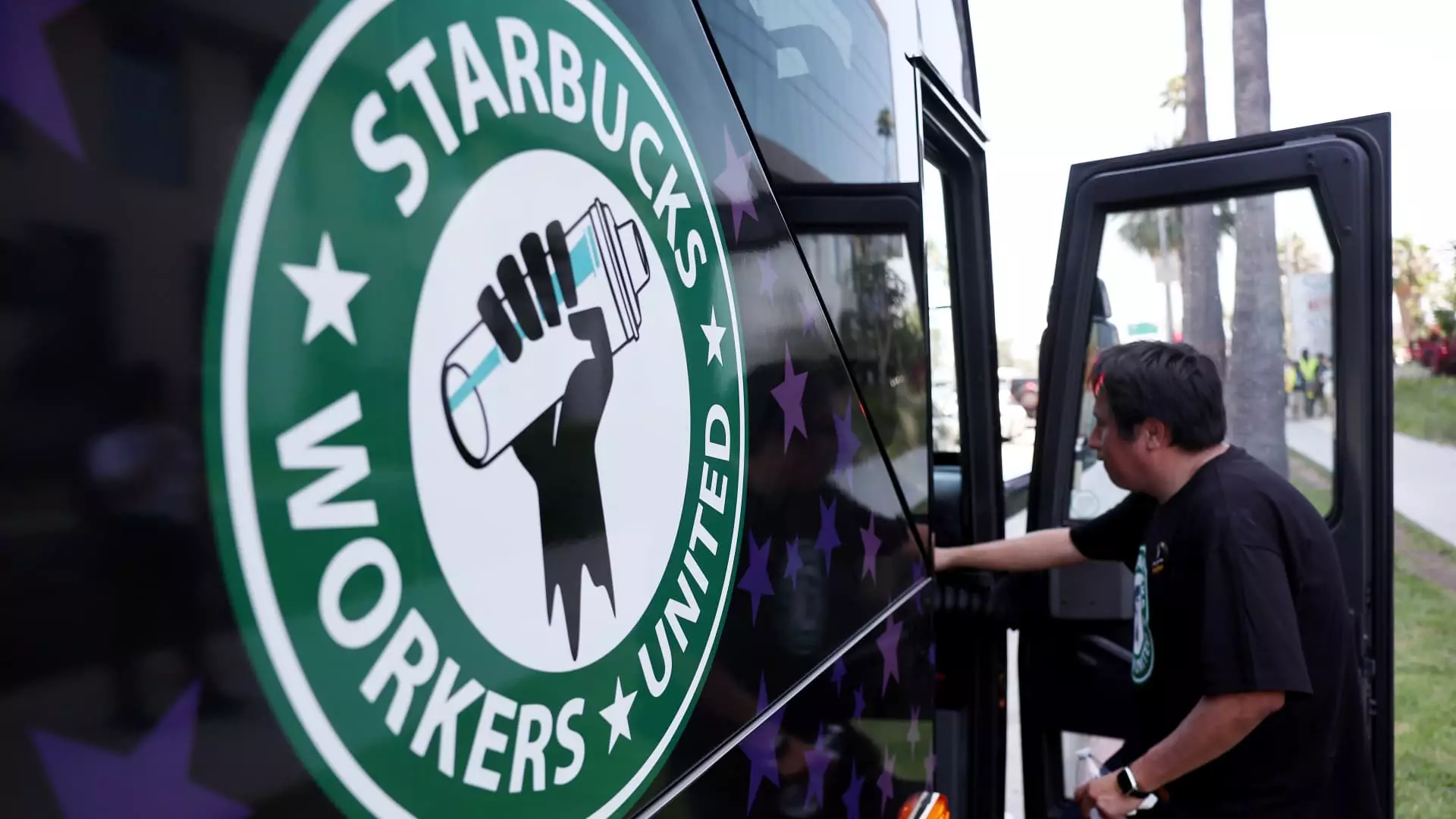In a significant development for the labor movement within the coffee industry, Workers United announced that a staggering 98% of its union baristas at Starbucks have voted in favor of authorizing a strike. This move comes as negotiations continue over their contracts with the coffee giant. The escalating tensions signal growing dissatisfaction among workers who believe that their needs and rights are not being adequately addressed by the management. As both parties prepare for the final bargaining session of the year, the question remains: will a resolution be reached, or are deeper fissures emerging in this relationship?
Despite fruitful discussions that have spanned hundreds of hours, the union expresses frustration over what they describe as unresolved unfair labor practices and the absence of a comprehensive proposal from Starbucks that covers critical issues such as pay and benefits. The extensive bargaining efforts have yielded dozens of tentative agreements; however, many of these lack the foundational changes that workers seek. The union contends that meaningful progress has been stalled, fueling their decision to pursue strike authorization.
Conversely, Starbucks management asserts that they are engaged in constructive negotiations, emphasizing their willingness to reach a definitive agreement. The company claims to have made significant concessions, citing over eight multi-day bargaining sessions that have led to thirty agreements across various topics, many of which address economic concerns brought forth by the union. This apparent contradiction illustrates the complexity and challenges inherent in labor negotiations, particularly in an industry where employee satisfaction is closely tied to customer experience.
Starbucks’ relationship with its workforce has been tumultuous in recent years. The company previously faced public backlash and scrutiny for its opposition to the unionization efforts that have spread across its locations. This resistance culminated in intense scrutiny from consumers and political figures, which led to former CEO Howard Schultz testifying before Congress regarding the company’s labor practices. As a new leader, Brian Niccol has made pledges to engage in good faith negotiations, even introducing enhanced parental leave policies. Yet, these gestures may fall flat in the face of ongoing worker discontent.
Long-Term Implications for the Coffee Giant
The financial realities facing Starbucks cannot be ignored. Following a downturn in sales at its U.S. locations, reports suggest that baristas may only receive modest pay increases next year, compounding their dissatisfaction. The unionization wave that has engulfed Starbucks since the first successful election in Buffalo just three years ago shows no signs of abating, with over 500 locations now represented by Workers United.
This scenario begs the question of how Starbucks will navigate the complexities of labor relations while maintaining its reputation and customer loyalty. The threat of a strike looms large, signaling that workers are willing to take drastic measures if their demands continue to be unmet. As events unfold, the resolution of this labor dispute will undoubtedly shape the future dynamics of the corporation and its approach to employee relations.


Leave a Reply